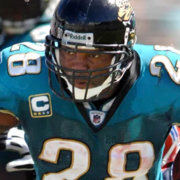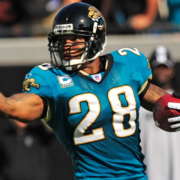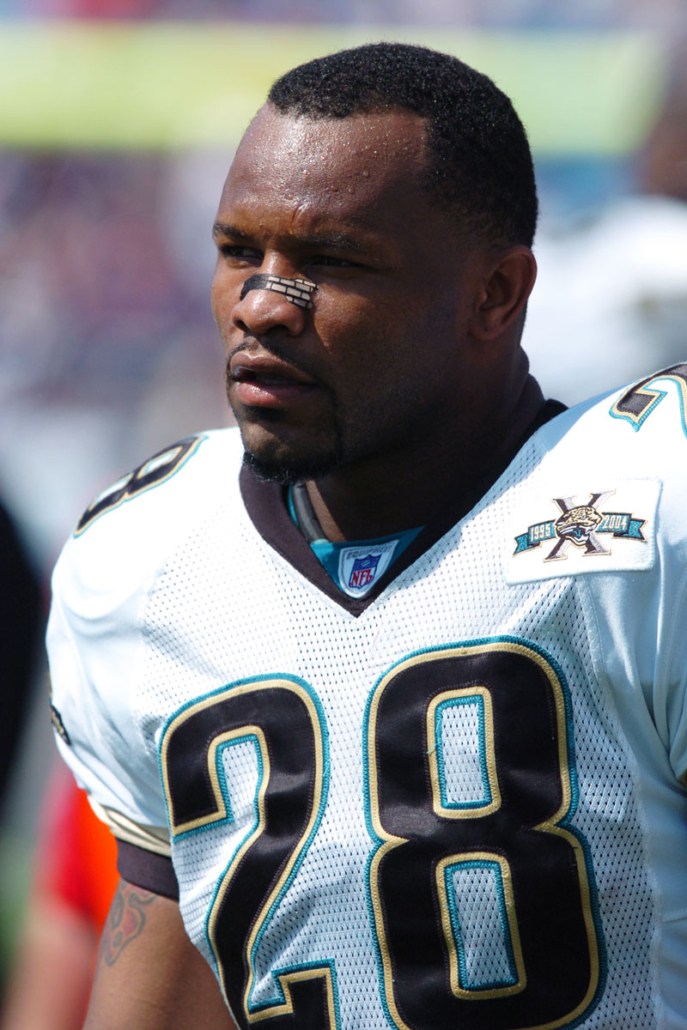Hall of Famers Think Fred Taylor Deserves a Gold Jacket
When the Jaguars were and early expansion franchise, they were competitive, but not a national draw on TV. Most of their games were what is called “point-to-point” broadcasts. Only the home market and the visiting team city received the broadcast of the game, and as many of you remember, blackouts were still a part of the NFL. If the home team didn’t sell out 48-hours in advance, the game wasn’t shown in the home market. Thank goodness that’s gone.
Because of Jacksonville’s market size, and the newness of the franchise, games shown nationally that involved the Jaguars were few and far between.
And consequently, a lot of people didn’t get to see Fred Taylor play. So presenting his case for the Selection Committee of the Pro Football Hall of Fame as the Jacksonville representative, just raising awareness of Fred’s career for the other selectors has been part of the task.
But what I have found during my research into Fred’s career is the overwhelming respect Taylor’s opponents have for him, his style of play, his stats and how he treated the game.
Talking to Hall of Fame Selection Committee members Clark Judge and Ira Kaufman on the “Talk of Fame” network, Taylor outlined what he thinks of the whole Hall of Fame process.
“When it comes to something like this,” Taylor said of the Hall of Fame, “I never really understood how much this meant to me. When I played, I played hard and I played the game the right way. I was coachable. I was respectful of the game. I never set a goal of mine to be in the Hall of Fame. I wanted to win championships. I wanted to be the best teammate.”
Fred’s opponents clearly agree.
“When I went to Pittsburgh, nobody talked about any other running back but Fred,” Hall of Fame safety Troy Polamalu told me. “We always tried to stop Fred first. He was special. Those games against Jacksonville were so physical. I’m grateful to have played in that era. There’s nobody he wasn’t better than in our era. He was gifted and he also had grit.”
And Troy laughed at a memory of facing Fred on Sunday in Pittsburgh.
“I hit him when he wasn’t looking and I felt like I hit a brick wall,” he said. “He didn’t even see me coming and I didn’t knock him down. I went down on my knees and I thought, ‘Maybe I shouldn’t even play the next play.’ That’s the kind of player he was.”
Marcus Allen couldn’t say enough good things about Taylor. “Fred was special,” he told me. “Fred had it all. If he played in a different market than Jacksonville, with his numbers, I don’t think we’d even be having this discussion.”
Apparently, Allen and the late Jim Brown, who many consider the best to ever play the game, thought Taylor was something different.
In an interview in the early 2000’s, Brown said, “Marcus Allen and I used to talk about a running back that no one used to talk about out of Jacksonville, Fred Taylor. And Fred is cold blooded and nobody generally talks about this guy. You can’t catch him. He’s got all the natural moves. Those of us with a keen eye know Fred Taylor is the best running back I’ve seen in a long time.”
Thurman Thomas, a Hall of Famer with 350 more career carries but one fewer rushing touchdown than Taylor said, “A lot of people didn’t get to see him play. Small market, not a lot of TV.”
“Being a running back I always watched his career and I thought his strongest part was his mental game and how he overcame stuff,” he added. “I’ve always thought Fred was that guy who should be in the Hall. He ran the ball well, he caught the ball well. He didn’t have a bunch of Pro Bowlers blocking for him but still he put up numbers.”
And that’s true.
During Taylor’s career, only two offensive lineman blocking for him ever went to the Pro Bowl: Tony Boselli, in the first three years of Fred’s career. And Leon Searcy, once, in ’99, Leon’s last year in the league.
And when I went to get off the phone with Ray Lewis and read back some of his quotes he said, “I want to say something stronger,” and went on a soliloquy.
“Fred was a “something else” type back,” he started. “He was really something else. He got caught in a small market. We had some classic battles that nobody ever saw. And that was when it was legal to try and tear a guy’s head off.”
“When somebody steps on the field who’s a Hall of Famer, he’s a problem. Fred was a problem. I would be proud to see him put on a gold jacket. He made me what I am. I had to get better because of him. That’s a fact.”



 When I asked Hall of Famer Troy Polamalu what it was like to stand on the other side of the line from Fred Taylor, he paused and said, “I think he’s the best running back I ever faced.”
When I asked Hall of Famer Troy Polamalu what it was like to stand on the other side of the line from Fred Taylor, he paused and said, “I think he’s the best running back I ever faced.”